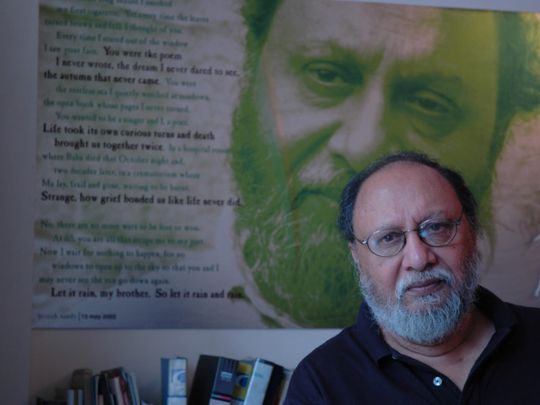
Dubai: As the coronavirus scourge keeps sweeping the planet, lockdowns and social distancing have become a way of life for billions, cutting across the socio-economic barrier. However, notwithstanding the efficacy of such measures to force people into home quarantine, in order to be able to break the contagion, a rather uneasy question arises: Does a lockdown also involve a certain social cost that we need to guard against?
Speaking to Gulf News from New Delhi on Monday, eminent Indian political psychologist and social theorist Ashis Nandy said: “There is no doubt that a lockdown for a prolonged duration will have some negative effects. It is bound to put people under enormous mental stress. Even if you leave aside every other consideration, there is an obvious economic cost that cannot be overlooked.”
Elaborating the point further, Nandy said: “In a smaller country or in places with insular societies, the psychological and sociological effects of a lockdown can still be kept to a minimum. But in case of a country like the United States or for that matter India, with large, heterogeneous populations of varied economic resources, a prolonged lockdown, and particularly social distancing, can result in mental anxiety and even social unrest. Both, in the longer and shorter terms, these are bound to have an impact on people’s mindsets and how they interact with their immediate surroundings.”
Price of social restrictions
Driving the point clearer, Nandy added: “In countries with more insular societies, such as Britain, social distancing and lockdowns may have some positive bearing, though even these nations have also struggled to have fool-proof measures in place. But in places like India and US, these social restrictions come with a price of their own – mostly in psychological terms.”
However, Nandy was also quick to add that the current scenario also has its own lessons for the wider masses and governments, particular in a populous nation like India that cannot and should not be ignored. According to him, just as every cloud has a silver lining, the current situation emerging out of the coronavirus outbreak offers some life lessons, too. “For a country like India, this pandemic has once again shown how very vital it is to cover as many people as possible under some sort of a national health insurance scheme and a social security safety net,” Nandy said. According to him, the federal government has a very big role to play to try and expand this safety net to ensure maximum benefit for the maximum numbers.
“The coronavirus pandemic has taught a financially-accomplished person that she or he can easily contract a disease that a slum-dweller has picked up, too. And that there’s no amount of guarantee that money can buy against a pandemic that has cut across the globe with such an alarming speed. On the other hand, the socio-economically downtrodden can no longer live with this glum sanguinity that this is an elite disease that only globe-trotters are likely to pick up.”








